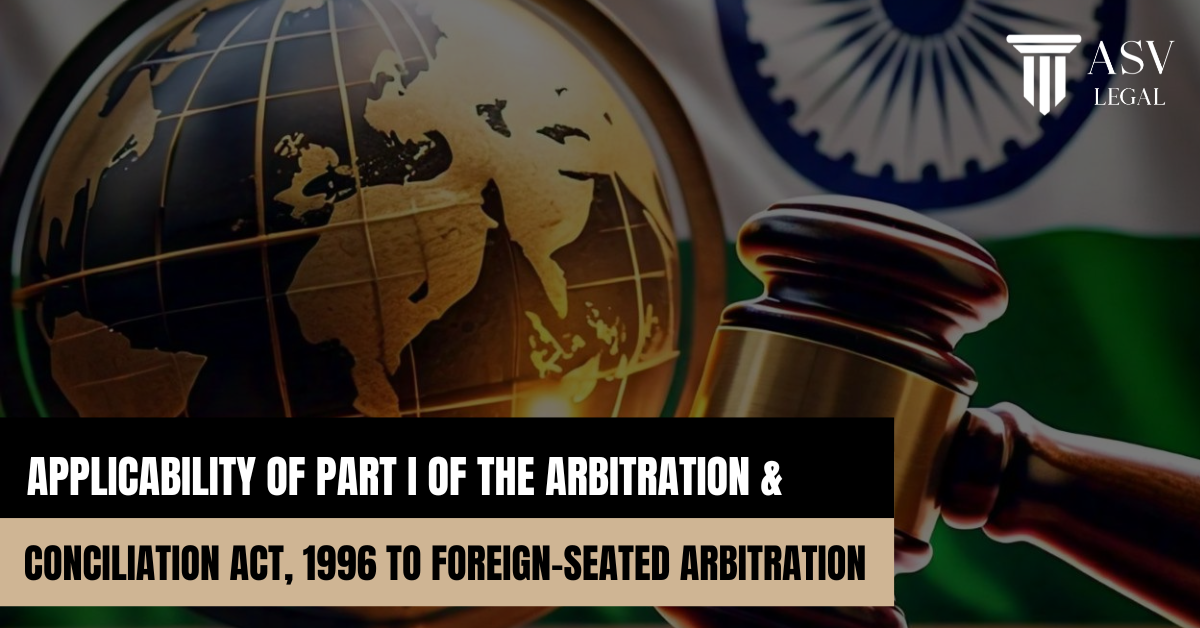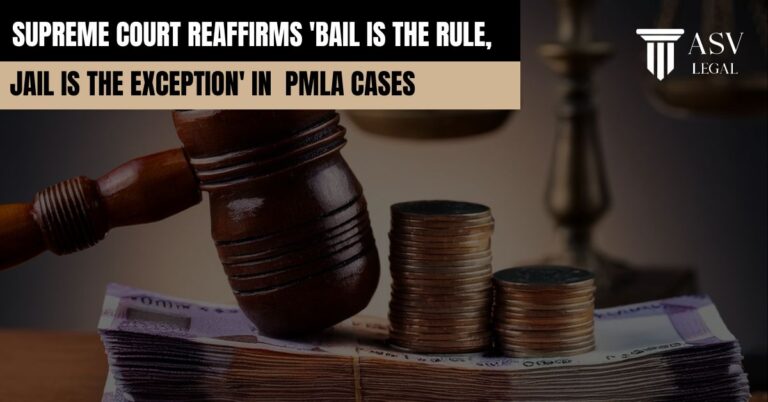Written By: Vinayak Gupta
Introduction
Part I of the Arbitration and Conciliation Act, 1996 applies to arbitrations held within India, while Part II governs arbitrations with a seat outside of India. Part III covers conciliation processes, and Part IV includes miscellaneous provisions. Part I and Part II are distinct and do not overlap.
According to Section 2(f) under Part I of the Act, “international commercial arbitration” involves at least one foreign party, whereas Section 44 under Part II defines a “foreign arbitral award” as an award from an arbitration seated outside of India. This results in an unusual situation: while arbitration between two Indian parties with a seat outside India is treated as domestic arbitration, the resulting award is considered a foreign award.
The 2015 amendment to the Arbitration Act introduced a key change regarding Section 9, which allows parties in foreign-seated international commercial arbitration to seek interim relief from Indian courts. This option is available unless the parties have explicitly or implicitly excluded the applicability of Section 9 in their arbitration agreement. The Supreme Court of India and various High Courts have repeatedly deliberated on whether provisions of Part I apply to international commercial arbitrations held outside India. The Bhatia International v. Bulk Trading S.A. ruling initially affirmed that Part I of the 1996 Act applied to all arbitrations, including foreign-seated arbitrations, unless excluded by the parties. However, the Balco v. Kaiser judgment overturned this ruling prospectively, affecting agreements made after September 6, 2012, while Bhatia International still applied to agreements made before this date.
Impact of the Amendment on the Bhatia-Balco Debate
The 2015 Amendment partially revived the principle established in Bhatia International, allowing interim relief under Section 9 in international commercial arbitrations with a foreign seat, unless there is an agreement to the contrary. The provision’s wording, “subject to an agreement to the contrary,” leaves ambiguity on whether such an agreement must be explicit or can be implied.
The Concept of ‘Implied Exclusion’
The exclusion of Part I in foreign-seated arbitrations, either explicitly or implicitly, has been a contentious topic. In Videocon Industries Ltd. v. Union of India, the parties agreed that English law would govern the arbitration agreement, and the arbitration was seated in Kuala Lumpur, while Indian law governed the contract. The Supreme Court concluded that selecting English law for the arbitration agreement implied the exclusion of Part I, and thus Indian courts could not exercise jurisdiction under Sections 9 or 34. Similarly, in Yograj Infrastructure Ltd. v. Ssangyong Engineering & Construction Co. Ltd., the Supreme Court ruled that by agreeing to arbitrate under SIAC Rules, the parties had implicitly excluded Part I of the Arbitration Act, 1996. This was reaffirmed in Reliance Industries v. Union of India, where the court ruled that by choosing London as the seat and English law to govern the arbitration agreement, the parties had excluded Part I of the Act.
Current Legal Position
After the 2015 Amendment, Sections 9, 27, 37(1)(a), and 37(1)(3) of the 1996 Act are applicable to foreign-seated arbitrations unless the parties have expressly or implicitly excluded their applicability. However, these provisions apply only if the arbitration takes place in a country whose awards are recognized under Part II of the Act. Furthermore, for interim relief to apply under Section 9, there must be no agreement that excludes these provisions.
Conclusion
While drafting contracts, parties should carefully consider the seat of arbitration and the governing law. The 2015 Amendment has clarified the applicability of Section 9 (interim measures) in foreign-seated arbitrations. If the parties intend to retain the application of Sections 9, 27, and 37(1)(a) and 37(1)(3) in foreign-seated arbitrations governed by foreign law, they must clearly state this in their agreement. Conversely, if the arbitration is governed by Indian law, these provisions automatically apply unless specifically excluded.




